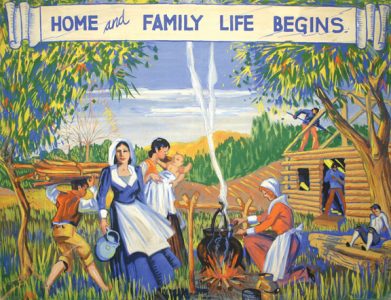 Sustainability is something that has received an increasing amount of attention. Any idea/product/business/practice can be great but if it cannot sustain over time, its ability to survive and make an impact is small. Production agriculture as a whole has to be sustainable otherwise, at some point, we as humans would cease to exist. Related to this, farmers typically want to continue what they are doing long term and we need them to be successful, so we continue to have food and fiber available. Something we stress in Extension programming is financial sustainability. Simply put, are the participants in a given industry/commodity market/farmable to receive enough financial return to continue operations into the future? When the answer is no, that farm will go out of business and affect not only the farmer, but everyone up and down the food supply chain. One thing to note, the overall economy has been positive but the agricultural sector does not always mirror that. Farmers can be subject to a multitude of factors and the last several years almost all sectors of agriculture have struggled.
Sustainability is something that has received an increasing amount of attention. Any idea/product/business/practice can be great but if it cannot sustain over time, its ability to survive and make an impact is small. Production agriculture as a whole has to be sustainable otherwise, at some point, we as humans would cease to exist. Related to this, farmers typically want to continue what they are doing long term and we need them to be successful, so we continue to have food and fiber available. Something we stress in Extension programming is financial sustainability. Simply put, are the participants in a given industry/commodity market/farmable to receive enough financial return to continue operations into the future? When the answer is no, that farm will go out of business and affect not only the farmer, but everyone up and down the food supply chain. One thing to note, the overall economy has been positive but the agricultural sector does not always mirror that. Farmers can be subject to a multitude of factors and the last several years almost all sectors of agriculture have struggled.
In agriculture, as in most markets, consumers are affected by price. Hypothetically, if food was produced but no one could afford it, you could imagine what kind of reaction there would be. Much of the food supply chain is set up to produce a sufficient (even abundant) quantity of food at an affordable price. This is evident when a customer goes to the supermarket, can choose a number of products and has the ability to pay for the products they choose. There is recognition that simply finding the cheapest price may not be the best way to determine sustainability for both consumers and producers. In fact, sometimes paying more for higher quality products is better for both. Financial return is important but sometimes calculating that return can be complicated. We may not fully understand how something positively or negatively affects sustainability until a point later in time. It is important to look big picture and see that the system as a whole is sustainable. This means natural resources, financial resources, and human resources are all available long-term.
Two things almost everyone can do to understand more about agriculture sustainability (1) get to know and support your local agriculture and (2) grow your own food. Getting to know producers within your area allows you to understand how, what, and why something is produced. You can see their stewardship practices and can understand how sustainability is implemented on their farm. Being familiar and appreciating the work they put into the community, our willingness to pay for these products increases and adds financial sustainability into the system.
Secondly, if we ask the question why is production agriculture important or necessary, it is because people stopped producing their own food. There are a number of reasons for this but in an earlier time, people produced and consumed what they needed within their own property. As times progressed, a farm was producing for themselves and their neighbor down the road. Take it a step further and that farm is producing for themselves and ten other members of their community. It would be difficult to expect everyone nowadays to be able to do this; however, producing at least some of your own food can have numerous benefits. This includes cost savings, quality, variety selection, appreciation for producing something, exercise, and less reliance on a production chain. If it does not come from you, supporting local growers shortens the link between how food gets from a field to your plate and provides benefits to local business and your community. Contact your Alabama Cooperative Extension System to get information on developing your own plot and to understand more about agriculture in your area.
To contact Kevin Burkett, email him at Ksb0002@auburn.edu or call 205-245-5365
Contributed by Kevin Burkett, Regional Extension Agent – Farm & Agribusiness Management



